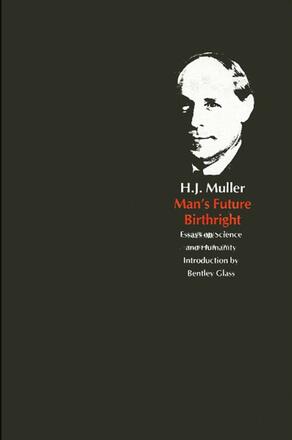
Man's Future Birthright
Essays on Science and Humanity
Description
Hermann Joseph Muller (1890–1967) was a member of the early genetics group at Columbia University that developed the chromosome theory of inheritance. T. H. Morgan received the Nobel Prize in Medicine and Physiology for this work in 1934, and Muller, his student, received the Nobel Prize in 1946 for his discovery of radiation-induced mutation.
Muller's writings extended beyond contributions to technical journals. He was an active critic of social abuse of science; he advocated eugenic programs based on free choice; and he played a major role in the reform of high school biology.
Muller's social views were published in magazines and journals which are accessible to scholars more than to the lay reader or student. They have been collected here to show how extensively he thought our lives are affected by radiation, evolution, modern medicine, and gene theory. He attempted to alert humanity to the dangers of neglect and abuse of their genetic heritage. He also used humanistic values to urge mankind to improve itself, to foster cooperativeness, to increase health and intelligence, and to adopt and evolutionary outlook.
A companion collection of essays, The Modern Concept of Nature: Essays on Theoretical Biology by H. J. Muller, also published by State University of New York Press, deals with Muller's scientific contributions to genetics and evolution. It was Muller who developed the relation between genes and mutation; his views on the primacy of the gene in biology are reflected today in the similar primacy of nucleic acids as the basis of life. For students of the history of ideas, a collection of these essays would illustrate how genetic thinking prepared the world view for molecular biologists.
The relation of science to values is often neglected because of the inaccessibility of the written contributions of famous scientists. To read Muller's major essays in these two areas is an important way to evaluate a scientist's career, his maturation of ideas, and his developing application of science to society.
Elof A. Carlson is a geneticist who studied under Muller at Indiana University where he received his Ph. D. in 1958. Dr. Carlson is professor of biology, State University of New York at Stony Brook. He received the E. Harris Harbison Award for Distinguished Teaching, 1972, from the Danforth Foundation.